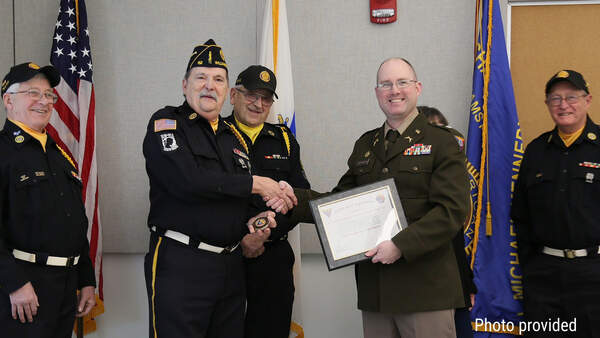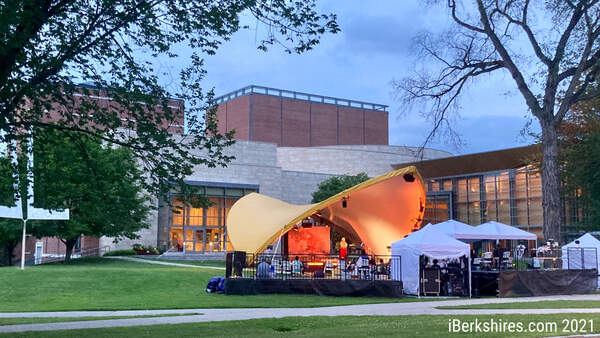Williams College Announces 12 Promoted to Associate Professor with Tenure
WILLIAMSTOWN - Williams College has announced the promotion to associate professor and the award of tenure effective July 1, 2008 to 12 assistant professors. They are: Dieter Bingemann, chemistry; Cecilia Chang, Asian Studies; C. Ondine Chavoya, art and Latina/o Studies; Theo Davis, English; Jennifer French, Romance languages; Stephen Freund, computer science; Manuel Morales, biology; Noah Sandstrom, psychology; Lucie Schmidt, economics; Stefanie Solum, art; Heather Stoll, geosciences; and Janneke van de Stadt, German and Russian.Bingemann teaches courses in introductory chemistry, thermodynamics, quantum chemistry and molecular spectroscopy, and environmental science. His research interests include investigating the slow, heterogeneous dynamics of glasses, which include materials such as plastics or even sugar coating on cornflakes. His research has been funded by the ACS Petroleum Research Fund, and his work has been published in the Journal of Chemical Physics, Macromolecules, and Chemical Physical Letters, among others. He received his Ph.D. in 1994 in physical chemistry from Georg-August Universitat in Gottingen. He did his post-doctoral work at the University of Wisconsin-Madison. Bingemann was co-coordinator in 2004 and 2007 of Science for Kids, a Winter Study program at the college in which Williams undergraduates design hands-on science workshops for elementary school students in the local community.
Chang teaches beginning through advanced Chinese language. Her research interests focus on second language acquisition. In particular, she has worked on foreign language pedagogy, curriculum design and evaluation, and multi-media learning programs. As a 2005-06 Oakley Fellow, Chang examined the relationship between the metacognitive awareness of non-native readers of Chinese and their reading comprehension, as well as the development of such awareness across different language proficiency levels. Chang has taught at Princeton University and the University of Michigan and was lead instructor at Middlebury and Princeton's Chinese summer schools. She also holds teacher training workshops at Middlebury in recent years. Her articles on reading comprehension and diversity in advanced-level Chinese courses have appeared in a number of academic journals and she is the author of a computer workbook for intermediate Chinese. Chang earned her B.A. at Fu-Jen University in Taiwan in 1981, her M.A. in applied linguistics at UCLA in 1987, and her Ed.D. at the University of Massachusetts at Amherst in 2005. She has been teaching at Williams since 1989.
Chavoya teaches in the art history department and Latina/o Studies program. His areas of expertise include Chicana/o art and media, Latino/a visual culture, and avant-garde art practices in North America after 1960. His research focuses on the interactions between art, social space, and the urban environment; the ways artists have perceived, interpreted, represented, and intervened in the urban landscape; and the relationships between racial formation and racial signification. His work has been supported by grants and fellowships from the Georgia O'Keeffe Museum Research Center, American Council of Learned Societies, and Smithsonian Institution, among others. He has curated exhibits at the Williams College Museum of Art and collaborated on the MASS MoCA exhibition and catalogue "The Interventionists." His published work includes a number of anthologized essays and articles in CR: The New Centennial Review, Wide Angle, Performance Research, and Afterimage. His essay on video artist Michel Auder has circulated widely through various reprints including a French translation. He received his B.A. from the University of California at Santa Cruz in 1992 and his Ph.D. in visual and cultural studies from the University of Rochester in 2002.
Davis teaches courses on 19th century American literature and contemporary literary theory. In her book, "Formalism, Experience and the Making of American Literature in the Nineteenth Century" (Cambridge University Press, 2007) Davis argues that Emerson, Hawthorne, and Stowe sought to create an art of abstract experience, and she also examines the role of form in literary studies today. Her next book is an inquiry into the concept of ornament in aesthetics and American literature. She received her B.A. from Brown University in 1994 and her Ph.D. in English and American literature from John Hopkins University in 2002.
French teaches in the departments of Romance Languages and Comparative Literature. Her courses range from elementary Spanish to contemporary fiction, with a focus on culture and politics in 19th and 20th century Latin America. Her research focuses on literary responses to war and colonialism in Latin America. Her recent book, "Nature, Neo-Colonialism, and the Spanish American Regional Writers," re-examines Spanish American fiction from the early twentieth century in the light of the region's economic relationship with Great Britain, emphasizing the writers' concern for social and environmental justice. Her current research, supported by an Oakley fellowship in 2005-06, examines the Paraguayan War of 1864-70 in the literature and cultural discourse of the four countries involved. Her articles and reviews have appeared in numerous publications, including Latin American Literary Review, Conradiana, and Gastronomica. She received her B.A. from the College of William and Mary in 1995 and her Ph.D. in comparative literature from Rutgers University in 2001.
Freund, in the computer science department, teaches courses on program languages and compilers, as well as introductory computer science and advanced programming. His research interests include design and implementation of programming languages and virtual machines, program analysis, and programming environments. Recently, he has focused his attention on techniques for automatically identifying bugs in software. In 2007, he was awarded a five-year, $400,000 CAREER grant from the National Science Foundation for his work on "Hybrid Atomicity Checking." This project builds on research previously conducted by Freund and his collaborators under a joint NSF/NASA program. Freund has published articles in journals including ACM Transactions on Programming Languages and Systems and IEEE Transactions on Software Engineering, and he has presented his work at numerous academic workshops and conferences. Before coming to Williams, Freund worked at the Compaq Systems Research Center on programmer productivity tools. He received his B.S. in 1995, M.S. in 1998, and Ph.D. in computer science in 2000 from Stanford University.
Morales teaches courses in conservation biology, ecology, environmental sciences, and an introductory course in The Organism. He has also taught in the Howard Hughes Medical Institute Summer Program for High School Students at Williams. His research focuses on the population and community dynamics of mutualism and looks at a variety of natural systems but especially ant-based mutualisms. He has received numerous research grants, including a National Science Foundation Postdoctoral Fellowship, an NSF Research Opportunity Award in 2001 for his project, "Interaction of Top-Down and Bottom-Up Processes in an Ant-Plant Mutualism," and most recently funding from the New York State Biodiversity Research Institute. Morales's publications include articles in Ecology, Oecologia, and Ecological Entomology, among others. He graduated from Kenyon College in 1994 and received his Ph.D. in ecology from the University of Connecticut in 1999.
Sandstrom's courses include Experimentation and Statistics, Neuroscience, and Hormones and Behavior. His research focuses on understanding how hormones modulate learning and memory and, in particular, the ways that estrogens alter the neural and behavioral consequences of ischemic brain injury. He has received grant support from the National Science Foundation and the National Institutes of Health including a $213,000 grant in 2005 for a project titled "Estrogen and Cognition following Ischemia." Sandstrom and his undergraduate students have published over a dozen articles in scientific journals including Hormones and Behavior, Behavioral Neuroscience, and Brain Research. He received his B.A. from Knox College in 1994 and his Ph.D. in experimental psychology from Duke University in 1999. Locally, he is involved in Neuroscience Outreach at the Williamstown Elementary and Pine Cobble Schools.
Schmidt teaches courses on microeconomics, gender and economics, public finance, and population economics. She also helped to create the Volunteer Income Tax Assistance Winter Study course, which is part of a community outreach program at the college. It trains students to assist local residents with their taxes. Schmidt's fields of expertise include economics of the family, government transfer programs and the well-being of low income families, and the economics of gender. In Spring 2006 she received a grant of more than $150,000 from the National Institute for Child Health and Human Development for her work on infertility insurance. Schmidt's work has been published in the Journal of Health Economics, the Journal of Human Resources, the Journal of Public Economics, and Fertility and Sterility. She graduated from Smith College in 1992 and received her Ph.D. in economics from the University of Michigan in 2003.
An expert on the Italian Renaissance, Solum teaches courses focused on Florence, Rome, and Venice, along with specialized courses on the myth of Michelangelo and Renaissance domestic visual culture. She also teaches in the Women's and Gender Studies Program. Her forthcoming book and article appearing in the Art Bulletin provide new evidence for and analysis of the role of women in the creation of Renaissance visual culture. Among other awards and grants, the American Council of Learned Societies awarded her one of its prestigious fellowships for a year of research and writing in 2004-2005. Solum has been invited to present guest lectures on feminist scholarship in art history and Michelangelo, among other topics. She received her B.A. from the University of Wisconsin in 1991, and her doctorate in the History of Art from the University of California, Berkeley in 2001.
Stoll teaches courses on environmental science, climate change, environmental geology, and the carbon cycle. Her research focuses on the history of oceans and climate and their complex interactions as archived in the sediment record. She has worked on the geochemistry of ancient volcanic rocks and other projects to better understand the Earth's continuing evolution. In 2007, she was named the European Geoscience Union Outstanding Young Scientist for her work focusing on historical patterns of climatic and oceanographic changes. She is the author of numerous articles in peer reviewed scientific journals including Geochemistry, Geophysics, and Geosystems. In addition to teaching at Williams, she has lectured at the University of Chicago, Brown University, and Amherst College. Stoll earned her B.A. from Williams in 1994 and her Ph.D. in geology and geophysics from Princeton University in 1998. She was a National Science Foundation/ NATO postdoctoral fellow at the University of Oviedo in Spain.
Janneke van de Stadt teaches Russian language and literature as well as courses in the comparative literature department, including The World of Isaac Babel, Images of Childhood in Russian Literature, and Reading and Writing the Body. She is interested in Russian-Jewish literature, the confluence of musical and literary narratives, and body theory. In her research, she has focused on Isaac Babel, a Russian Jew who rose to fame as a Soviet journalist, playwright, and short story writer. Her most recent project is titled "Fellow Traveler: Isaac Babel and the Writer's Path." She is the editor of the English translation of "The Inferno" by Luz Arce, a Chilean political activist and author. She was a fellow at the Oakley Center in 2005. Van de Stadt received her B.A. from Amherst College in 1988 and her Ph.D. in Slavic Languages from the University of Wisconsin- Madison in 2000.















